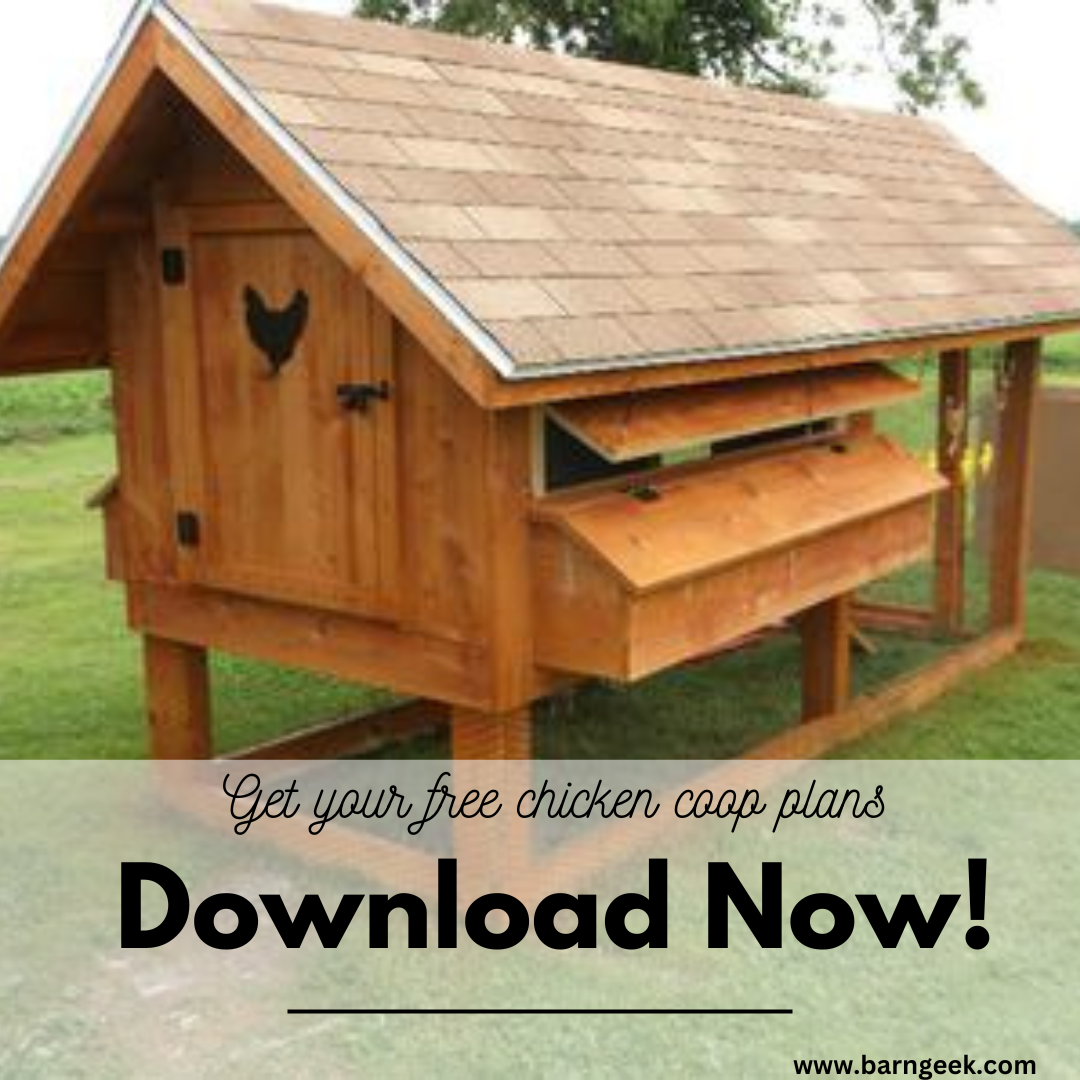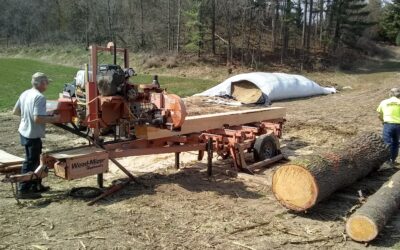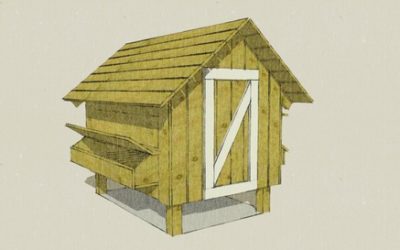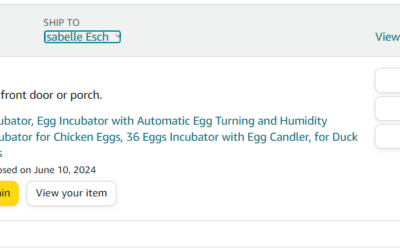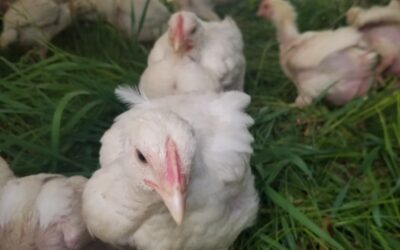Broody Hen? Here’s What To Do
by Isabelle Esch
Welcome to Broody Hen, this article in my series Raising Chickens for Beginners will tell you what to do.
You probably clicked on this article because your hen has gone broody, or maybe you don’t want her to.
Well don’t worry in this article we will go over everything you need to know about when your hen goes broody.
Such as, preventing broodiness, identifying broodiness, helping your hen go broody, and helping your hen sit her eggs.

What Is Broody Hen?
So, what is a broody hen?
A hen goes broody when she feels the desire to hatch eggs.
When your hen goes broody she will puff up her feathers and cluck warnings at you to back off, and stay away from her eggs.
There are various levels of broodiness.
When it starts she will cluck at you then move aside and let you touch the eggs.
Then she will puff up and let you move her, but won’t move willingly.
When she has fully gone broody she will try to bite you if you get anywhere near her or her eggs.

Preventing Broodiness
Maybe when you have a broody hen, you don’t want her to be broody, that leads me to our next section, preventing broodiness.
The best way to prevent broodiness is to diligently collect eggs, some hens will start going broody if you miss one day.
If you hen is already starting to display some signs of going broody, start to collect eggs twice a day or more until she goes back to normal.
If she has already gone broody and you take her eggs she will probably tell you how mad she is that you took the eggs, but she will get over it.
However, a hen that tries to go broody once will most likely try again soon, so keep a close eye on her.
Many broody hens will move where they lay if they want to hatch eggs and you have already collected their eggs.

Helping Your Hen Go Broody
What if you want your hen to go broody?
Your hen will be more likely to go broody if it is warm and you don’t disturb the eggs very often, she will most likely notice that you have stopped collecting eggs.
She may want more bedding to make her nest warmer and she will start to leave feathers in her nest.
Once she has started to spend more time in the nest, you will probably want to move the food and water closer.
If the food is too far she will go many days without properly taking care of herself, causing her feathers to dull and her movements to become slow, making her more vulnerable to predators and more likely to give up.

When They Hatch
Once the chicks have hatched, you will want to move your hen and her babies to a special coop away from the other chickens.
Most chickens wouldn’t purposely hurt a chick, but they might step on them and hurt them, and young chicks are very fragile.
However you don’t want to separate them from their mother if you can help it.
Their mothers teach them how to survive, keep warm, and find the best food.
Your hen will most likely scratch food out of the food dish to teach the chicks how to find it among the wood shavings.
Chicks will be eating mash almost as soon as they hatch, so remember to purchase the proper food for chicks, I wrote about buying feed here.

Thank you for reading this article in my series Raising Chickens for Beginners, I hope you enjoyed it and that it helped you in your chicken raising journey.
Please be sure to check out the rest of my articles about everything you need to know to get started raising chickens, like what is the best chicken feed, where to buy chickens, and natural chicken health.
Attention Homesteaders: Get your chicken coop, shed, and barn plans here.
The Homesteader
- Library of Barn Plans under 1k square feet
- Chicken Coop Plans Library
- Timer Frame Shed Plans Library
- How to Build a Barn Course
- Chicken Coop Course
Read More about Post and Beam Barn Kits below.
Is it worth while to have a local sawmill cut some or all of my Barn Lumber or even do it myself?
We have a LOT of eastern red cedars, Tulip Poplars, among other species. If I have a local sawmill cut our pieces for us, would you expect a significant savings overall?
Pride and Accomplishment in Having Built a Barn Myself
Besides the utility of having a barn and the value it adds to our property, having built the barn myself has given me a sense of pride and accomplishment that’s hard to place a value upon.
Free Chicken Coop Plans
You can build this hen house with these free chicken coop plans. It is easy to do. All you need is some rough cut lumber, a hammer, nails, and a circular saw. You can even build one with regular dimensional lumber from your local lumber yard. I built one like this for...
36 egg incubator reveiw. Trying an incubator from amazon.
In may of 2024 my husband and I decided to purchase an incubator in the hopes of hatching some cute silkie chicks for our son to enjoy. We bought eggs from local breeders to hatch along with sticking some layer mixes from our own farm in. As a busy family with my...
Best exterior coating for a barn?
Question asked in the BarnGeeks Facebook Group 4/21/24 Does anybody have any recommendations of the best exterior coating for a 40x60 gambrel? Unfortunately the wood is not rough cut so it won't absorb as well as all of the beams and the frame. I used iron oxide mixed...
Rebuilding Tradition: A Family’s Journey with BarnGeek’s Gambrel Timber Frame Barn
The old 40 x 60 barn my grandfather built in the forties collapsed in a snowstorm in 2015. I wanted to replace it with a similar style so I chose the 40 x 60 gambrel.
Fall 2019 to Now: The Story of Our 44×60 BarnGeek Barndominium!
We are thrilled to share an inspiring story from one of our Barn Plans Library members. This family embarked on a remarkable journey to transform our BarnGeek 40x50 plan into their dream home. Back in the fall of 2019, they decided to mix a couple of our plans,...
The Best Treats for Your Chickens this Summer
What are the best treats for my chickens? What can I safely feed my chickens? Let's look at some common chicken treats and what makes them good for you (your wallet) and your chickens! 1. Food scraps Low waste, low cost, and tons of fun! What could be better? Chickens...
Barn Kits Available Now!
Full Barn Kits are Back! Have you thought to yourself, “I would sure love to build one of those BarnGeek Barns but I just wish I could get everything I need to build it in one all inclusive kit!” Well, today is your lucky day! We are proud to announce...

